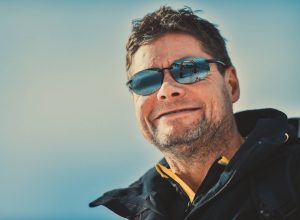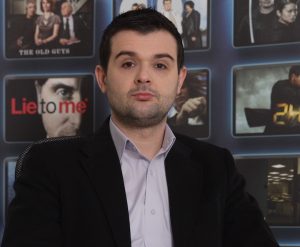Preparing for PyeongChang: BBC Sport and HRT Croatia Look Ahead to Winter Games
According to the organizers of PyeongChang 2018 their vision for the Games is ‘to offer the Olympic Movement and the world of winter sports New Horizons – a legacy of new growth and new potential never seen before.’ The plan is one of the most compact in Olympic history, and the events taking place between 9 and 25 February will provide a unique stage on which the world’s best athletes can achieve higher performances. It is the anticipation of the organisers that the 2018 Olympic Winter Games will expose new generations of budding athletes to the potential of winter sport.

Jonny Bramley, Executive Producer, Major Events, BBC Sport
Of course, much of that exposure will come through the broadcasts of the events taking place in South Korea. Over the next few weeks we will be taking a look at how some of the rights holders are planning their coverage.
The BBC view
“We usually start our Olympics planning three years out, when we attend the OBS World Broadcaster Briefing,” says Jonny Bramley, Executive Producer, Major Events at BBC Sport. “It gives us our first taste of the venues and the geography of the Host City, and we can start to formulate our broadcast plans.”
The broadcaster will show coverage on BBC One and Two for an average of 19 hours a day. In addition, there will be one Red Button channel on offer for 24/7. BBC iPlayer will be replaying all of this content, and the Corporation will be generating multiple video clips online and on social media. All of the digital clips for the web will be sourced from the TV output, but they will be edited in short form for the digital/social audience.
Bramley continues: “We will have a space in the IBC, and this will house our multi-platform production office, edit area, off tubes, gallery and equipment room. At this stage, we have not finalised the number of personnel we will have in South Korea.”
Remote production
He goes on: “Our main operation will be a remote one, with acquisition on site but the bulk of the production, post-production, journalism and programme transmissions coming from MediaCity UK in Salford.”
In addition, the BBC will have three editors on site specifically editing features which have been shot on location. “Those craft editors will produce the high-end material we expect on BBC Sport at a major event. We also have shoot/edit producers on site to supplement this content. Our editors in MediaCity UK will be editing highlights, openers, trailers and other creative sequences.”
Both in South Korea and at MediaCity UK, Avid will be used for editing to allow the teams to finish off, if necessary, sequences started in Salford or on location and vice versa.
“For our edit suites we’ll be using Avid’s Interplay MAM which will enable us to consolidate edits as we progress through the games freeing up valuable space on the edit storage. We will also use EVS’ IPDirector to manage our nearline,” explains Bramley.
He continues: “We tend to record all the OBS DX feeds we need for our post-production, and these will be transported to our base in MediaCity UK. If for any reason we don’t have the footage available in the IBC or MediaCity UK we have significant file acceleration workflows in place to transport that footage to where it is needed. This includes making it available to all of BBC Sports platforms and BBC Nations and Regions.”
The BBC does not plan to use any ISO cameras, as the cost is prohibitive and, says Bramley, the OBS coverage is perfectly adequate. “What we would do is ensure that at Curling, with multiple rinks, we can always select the rink featuring Team GB!”
Time differences
The main presentation in the UK daytime (0915-2000) is from the BBC studio in MediaCity UK. During the PyeongChang daytime (0000-0915 GMT) presentation will originate from an apartment in PyeongChang. One camera will be used, which can also operate RF in the Alpensia resort. A small Yamaha DM1000 sound desk will be used on site for remote mixing integration
The gallery in Salford will add the branded BBC Sport presentation graphics including name supers, results, programme trails and additional creative elements. These graphics will be inserted using a standard Viz platform.

Viki Ivanović, HRT sports journalist and the head of the Winter Olympics project
Croatian coverage
“HRT begun planning the coverage of the Winter Olympic games a year and a half ago, and the preparations intensified six months ago,” states Viki Ivanović, sports journalist and the head of the Winter Olympics project at the Croatia national broadcaster, HRT.
Ivanović goes on to say that during the Olympics, HRT will provide between three and five hours of live broadcasts each day and an additional three hours of recordings. HRT will also cover the opening and closing ceremonies. Alongside the broadcast coverage, HRT will place content on its website.
“To provide that coverage, we will be sending 13 of our people to South Korea, while a further 20 will work on the coverage from our Zagreb headquarters. We are not taking space at the IBC on this occasion, and all of our editing will take place back at the studio base in Croatia.”
There are no plans to send dedicated camera crews to PyeongChang; instead, the broadcaster will rely on the feeds from the Olympic channel and Eurovision for material.
“Whenever there is a coverage from another continent, it always represents a challenge. As mentioned, preparations are underway and as always, HRT will do its best to deliver picture and sound of this great sport event to our viewers,” concludes Ivanović.
